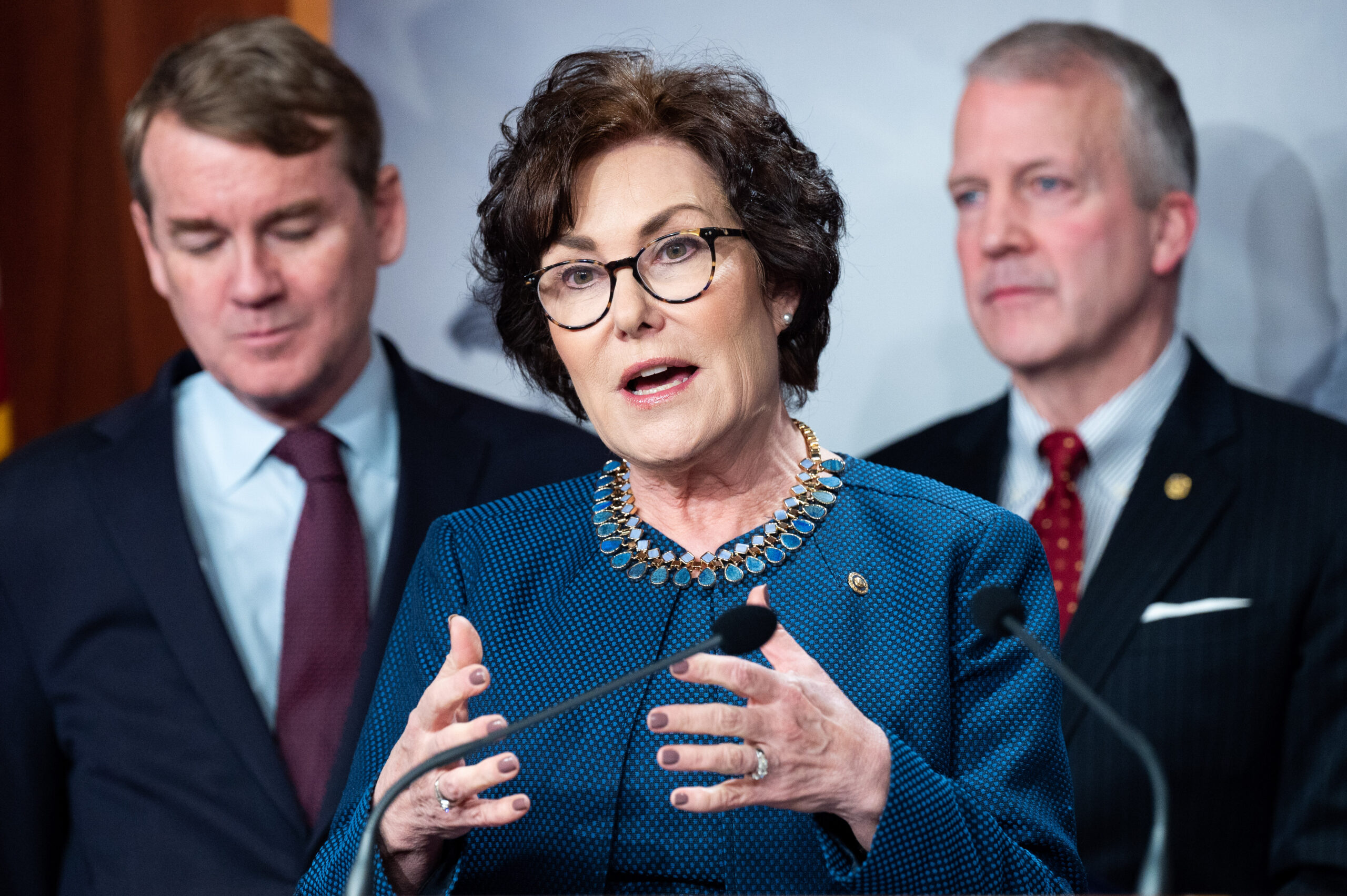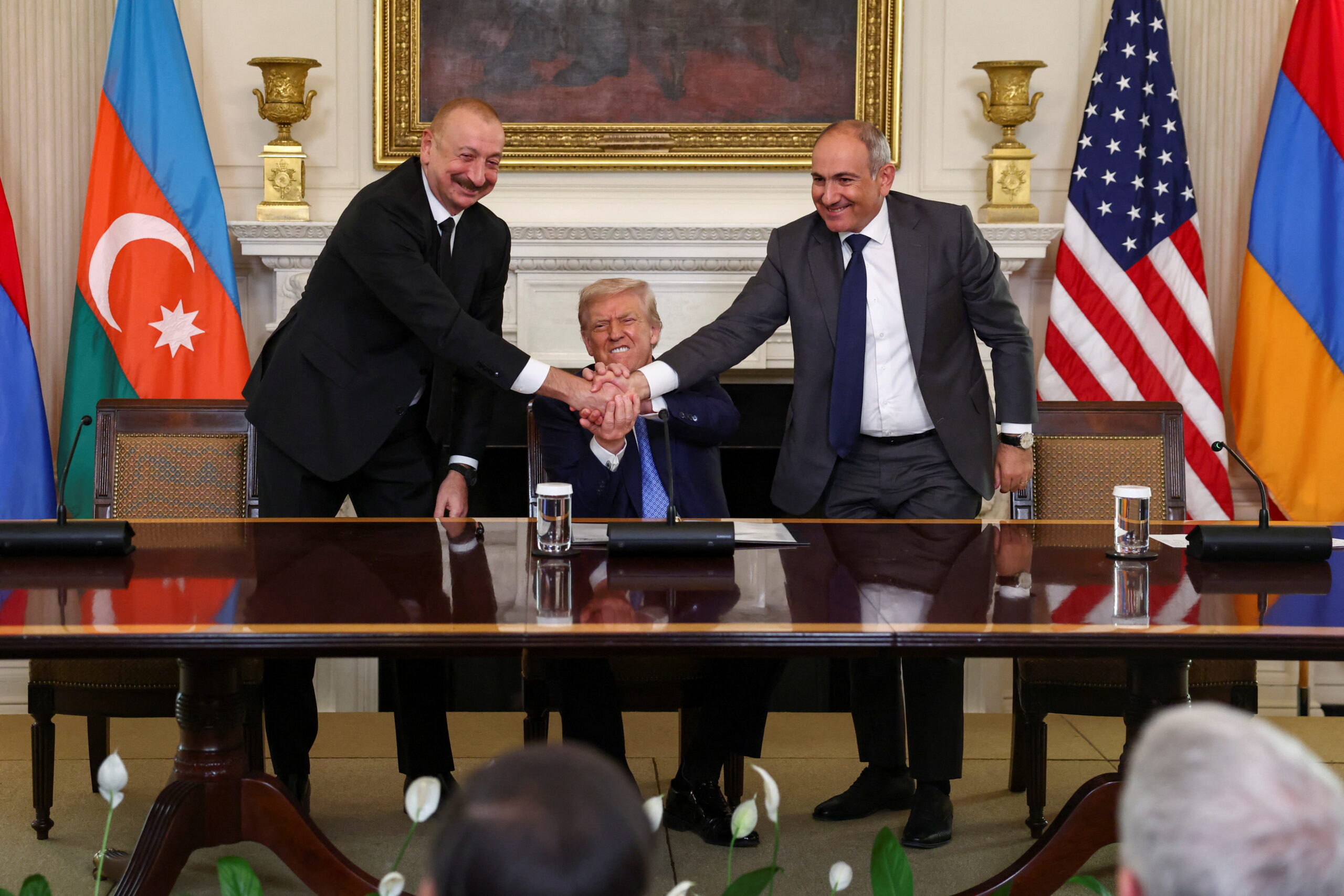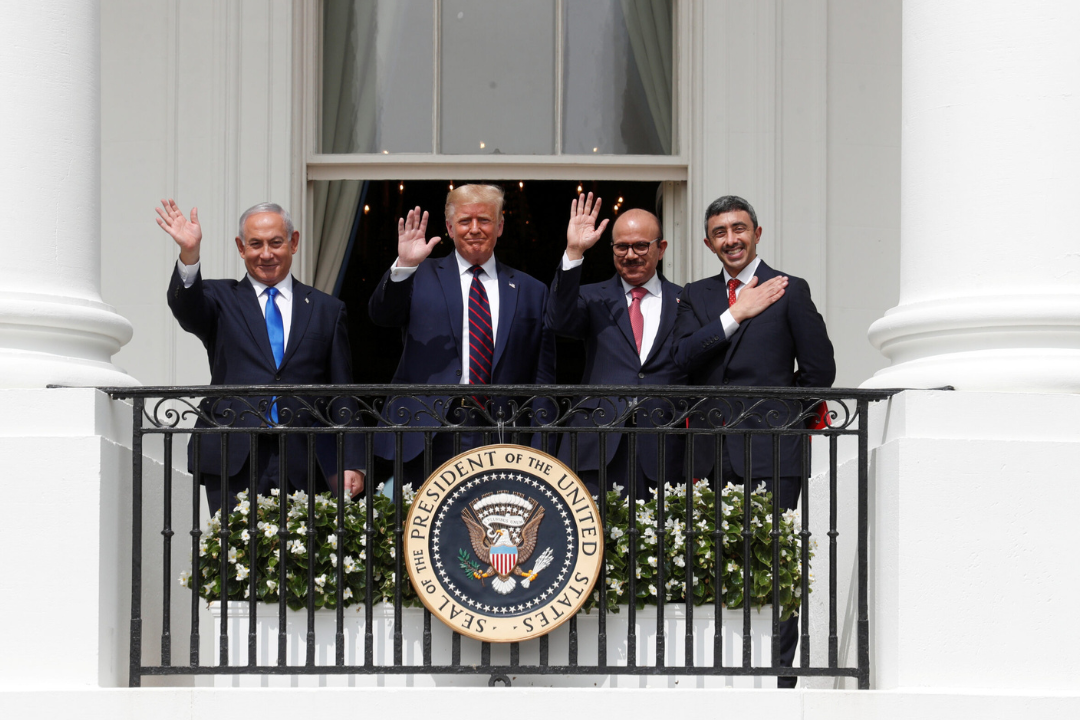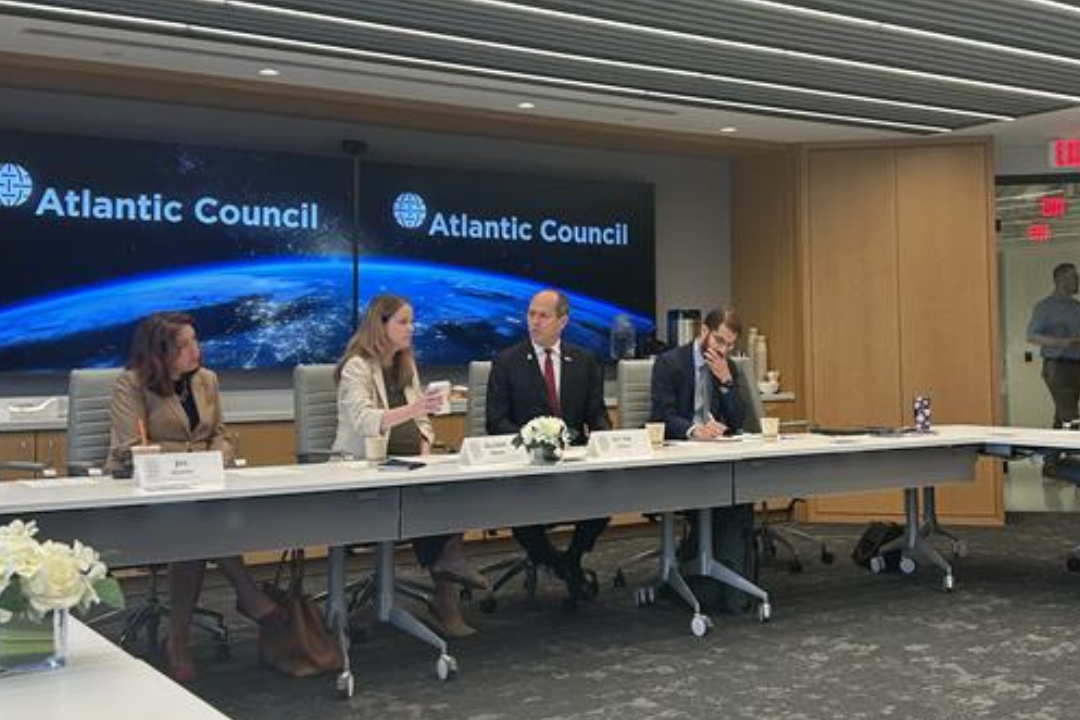By: Adam Kozloski
Theoretically, Congress must pass two things every year. One is the set of appropriations bills—often a single omnibus—to fund the government, and the second is the National Defense Authorization Act (NDAA). Congress has passed this defense bill without fail for sixty-three consecutive years, making its passage a near certainty. As a result, the NDAA has become one of the most potent legislative vehicles for policy related to national security.
In the last few years, this legislation has carried important authorizations and codifications for advancing regional Middle East defense integration and, through such integration, the Abraham Accords. As congressional leaders negotiate a final product between the House and Senate versions of the NDAA, which is due to be completed later this month, several vital provisions might soon be signed into law. Notably, these provisions have not been advanced by a single member or along partisan lines. The bipartisan nature of these efforts is a strong signal that Congress has remained committed to the future of the Abraham Accords despite the setbacks of October 7, 2023.
Key provisions in both versions of the NDAA
This year, congressional champions for the accords worked diligently to include several provisions in the House (H.R. 8070) and Senate (S. 4638) versions of the NDAA. These provisions will likely survive the current informal conference process and make it into the final passed NDAA.
First, the Learning Integrated National Knowledge (LINK) for the Abraham Accords Act is included as Section 1211 of the Senate bill and Section 1216 of the House bill. This legislation is led in the Senate by Senators Joni Ernst (R-IA) and Jacky Rosen (D-NV) and in the House by Representative Jimmy Panetta (D-CA) and a broad bipartisan coalition of Abraham Accords champions. Unlike predecessor bills like the Deterring Enemy Forces and Enabling National Defenses (DEFEND) and Maritime Architecture and Response to International Terrorism in the Middle East (MARITIME) Acts, which primarily focused on authorizing new types of regional cooperation, the LINK the Abraham Accords Act seeks to enhance existing integration efforts by requiring the secretary of defense to design and implement a military subject-matter exchange program for US partners in the region. If passed, this provision will build on the foundation of existing authorizations to expand regional military-to-military relationships—an often overlooked, but important, asset that should strengthen the ability of US partners to respond to a security crisis. Importantly, it will also solidify the United States’ role as a host and convener of such exchanges, reducing the political costs to the United States’ Arab partners of having Israel at the table.
Second, the Space Technology and Regional Security (STARS) Act is included as Section 1288 of the Senate and Section 1607 of the House bill. This legislation is also led by Senators Rosen and Ernst in the Senate and Representative Panetta and others in the House. The STARS Act would expand defense cooperation by requiring the secretary of defense to develop an integrated regional space and satellite strategy, including a data-sharing agreement. If operationalized, such a strategy could improve the ability of US regional partners to detect threats and develop a common operating picture, building on the integrated air- and missile-defense efforts already authorized under the DEFEND Act in 2022. This effort would improve US partners’ ability to defend their sovereign airspace from Iranian and other attacks by operating under a US umbrella.
First, the Learning Integrated National Knowledge (LINK) for the Abraham Accords Act is included as Section 1211 of the Senate bill and Section 1216 of the House bill. This legislation is led in the Senate by Senators Joni Ernst (R-IA) and Jacky Rosen (D-NV) and in the House by Representative Jimmy Panetta (D-CA) and a broad bipartisan coalition of Abraham Accords champions. Unlike predecessor bills like the Deterring Enemy Forces and Enabling National Defenses (DEFEND) and Maritime Architecture and Response to International Terrorism in the Middle East (MARITIME) Acts, which primarily focused on authorizing new types of regional cooperation, the LINK the Abraham Accords Act seeks to enhance existing integration efforts by requiring the secretary of defense to design and implement a military subject-matter exchange program for US partners in the region. If passed, this provision will build on the foundation of existing authorizations to expand regional military-to-military relationships—an often overlooked, but important, asset that should strengthen the ability of US partners to respond to a security crisis. Importantly, it will also solidify the United States’ role as a host and convener of such exchanges, reducing the political costs to the United States’ Arab partners of having Israel at the table.
Second, the Space Technology and Regional Security (STARS) Act is included as Section 1288 of the Senate and Section 1607 of the House bill. This legislation is also led by Senators Rosen and Ernst in the Senate and Representative Panetta and others in the House. The STARS Act would expand defense cooperation by requiring the secretary of defense to develop an integrated regional space and satellite strategy, including a data-sharing agreement. If operationalized, such a strategy could improve the ability of US regional partners to detect threats and develop a common operating picture, building on the integrated air- and missile-defense efforts already authorized under the DEFEND Act in 2022. This effort would improve US partners’ ability to defend their sovereign airspace from Iranian and other attacks by operating under a US umbrella.
Key provisions only in the Senate NDAA
Due to differences in clearance policies between the House and Senate versions of the bill, the Senate version holds more provisions that would advance the Abraham Accords. These provisions would broadly expand congressional engagement and breadth on integration and indicate a positive trend in these efforts.
One provision included in the Senate version is the Artificial Intelligence Allied Cooperation for Crucial Operations, Research, and Deployment (AI ACCORD) Act, or Section 1615 of the Senate bill. This legislation is led by Senators Ernst and Kirsten Gillibrand (D-NY) in the Senate. While a House companion led by Representative Jim Banks (R-IN) exists, it is not presently included within the House NDAA. This legislation directs the secretary of defense to develop a strategy to enhance defense information sharing among US regional partners. To execute the strategy, the Department of Defense will need to overcome the technical challenges of securely sharing data in real time between a multitude of different systems—and will also need to build trust between the countries sharing the data. Though the challenges are significant, tools like zero-trust networks and artificial intelligence, coupled with strong leadership by incoming President Donald Trump and Congress, could pave the way for a far more robust integrated defense architecture. The AI Accord Act—like the STARS Act—could be an important step in that direction.
The US-Jordan Defense Cooperation Act, or Section 1536 of the Senate bill, is another provision that enhances regional defense cooperation. This legislation is led by Senators Marco Rubio (R-FL) and Rosen. While there is a House companion, it is not included in the House NDAA. This legislation would, in part, direct the secretary of defense to work with Jordan to enhance its ability to counter air and missile threats from Iran and to participate in a regional integrated air- and missile-defense architecture, supporting the implementation of the DEFEND Act and providing important hardware for the software and information advances of the STARS and AI Accord Act. This legislation could greatly enhance Jordan’s defensive capabilities, thereby strengthening the regional defense architecture.
While some excellent legislative provisions currently appear only in the Senate version of the NDAA, there will still be an opportunity for leadership on the Senate Armed Services Committee to advocate for the inclusion of the AI ACCORD Act and the US-Jordan Defense Cooperation Act in the final version of the compromise text. In either case, this year’s NDAA will likely contain powerful legislative catalysts for deepening regional defense at the integration stage. Despite Iran’s increasingly belligerent role in the region and the uncertainty that Hamas’s October 7 attack on Israel has placed on regional integration, Congress has remained a champion and stabilizing influence for the Abraham Accords and the vision for a peaceful future for the region.
Adam Kozloski is a nonresident senior fellow in the N7 Initiative at the Atlantic Council’s Middle East Programs. In his former role as Senator Joni Ernst’s foreign policy adviser, he drafted or assisted in developing the DEFEND, MARITIME, LINK the Abraham Accords, AI ACCORD, and STARS Acts.







